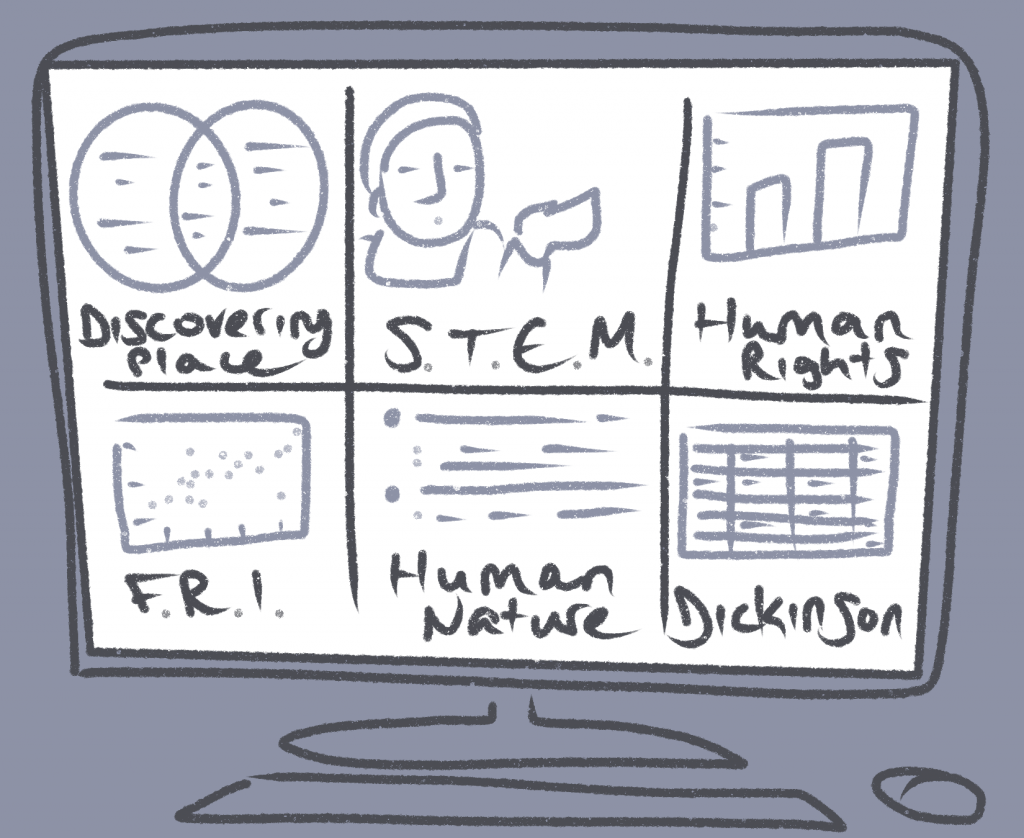Every year, Binghamton University students gather on campus to present their work to the public at Research Days. This year, the traditional setup was transformed into a virtual event, connecting the BU research community through Zoom.
When the coronavirus pandemic forced all SUNY schools, as well as universities across the country, to switch to an online format, many research conferences were canceled completely. The Research Days planning committee was determined to avoid this fate for their event.
The planning committee consists of 18 members who are all faculty, staff or students from BU, and is chaired by Valerie Imbruce, director of the External Scholarships and Undergraduate Research Center. Imbruce wrote that with the transition to an online format, the student researchers still performed up to and beyond expectations.
“We knew that the students would be prepared to talk about their research — that is the heart of the event and students who participate in the poster sessions are very passionate about their projects,” Imbruce wrote in an email. “Students really came through and did an amazing job. They practiced and revised their posters in class beforehand, it is an enormous effort by students and their faculty mentors, but one that paid off.”
More than 300 students presented 128 research projects, varying from a study on incarceration rates at the Broome County Jail to optimizing treatments for duchenne muscular dystrophy (DMD). The presentations were broken up into two sessions, one in the morning and one in the afternoon. Within those sessions, different research groups had their own Zoom rooms, including the Source Project, Dickinson Research Team, First-Year Research Immersion (FRI) and independent researchers in two categories: social sciences, arts and humanities and science, technology, engineering and math (STEM).
Jackson Hengsterman, an undeclared freshman, presented his research investigating why the incarceration rate at the Broome County Jail is higher than most counties in New York state at 39 per every 10,000 residents. Hengsterman started his research when he enrolled in the Source Project in the discovering place stream. The Source Project is a one-year research program for first-year students and currently offers three research streams students can choose from: human nature, human rights and discovering place.
Hengersterman said even with the limited time to convert Research Days to an online format, the committee created a successful event.
“I was extremely impressed with how organized the online presentations were, especially with the short amount of time there was to do it,” Hengersterman said. “I actually submitted my poster not even 24 hours before the actual presentation, so the fact that [it] was able to get compiled and put on the website, which worked really well, and everything was ran smoothly over Zoom was impressive.”
Antonietta Macri, a senior majoring in biology, and Rebecca Harris, a senior majoring in religious studies through the individualized major program (IMP), presented their work on DMD. They began their research in fall 2019. With Macri setting up their cell cultures and testing them to determine inflammatory reactions to certain treatments and Harris researching and determining the best way to deliver the treatment, the duo was headed into the spring semester ready to collect data when the spread of COVID-19 cut their research short.
Despite the fact that their research was brought to a sudden halt, they did not lose hope that they would be able to present their completed work at Research Days.
“I did not think Research Days was going to be canceled and I’m glad it wasn’t,” Macri wrote in an email. “A lot of people worked very hard on their research and they deserved the opportunity to present their findings. Everything was being shifted online, so I assumed this would be no different and they would find a way to have us present. ”
Lisa Theo, research and scholarship advisor in the External Scholarships and Undergraduate Research Center and a Research Days planning committee member, led the event’s transition to online poster presentations. Theo wrote in an email that she had confidence she and the committee would be able to figure something out.
“I never entertained [canceling the poster presentations entirely], and I would have argued vigorously against it,” Theo wrote. “But, I also know that the Research Days planning committee was supportive of us finding a way to make this work for the students.”
The committee had approximately one month from the day BU classes were moved online and, according to Theo, the transition was a success with only one meeting delay that was fixed quickly. Theo wrote that opportunities to share research are vital for the success of undergraduate students.
“When I was an undergraduate student, the part of my education that was most impactful was the research that I conducted under the mentorship of numerous faculty,” Theo wrote. “And, conducting the research is rewarding, but the opportunity to discuss that work with colleagues and faculty is the culmination of that work. Our students deserved this, and I was going to do whatever I could to make sure it happened for them.”
All of Research Days 2020’s poster presentations can be viewed on their website, which includes a comments and questions feature to connect the research community with a general audience beyond the event.
The rest of Research Days 2020 will continue this week with a Citizen Science Wikipedia Edit-a-thon on April 21 from 3 p.m. to 5 p.m., where BU Libraries is inviting participants to edit science-related Wikipedia articles. There will also be a student curator presentations event on April 23, from 6 p.m. to 7 p.m., where student curators from the BU Art Museum will be virtually presenting their exhibitions.



